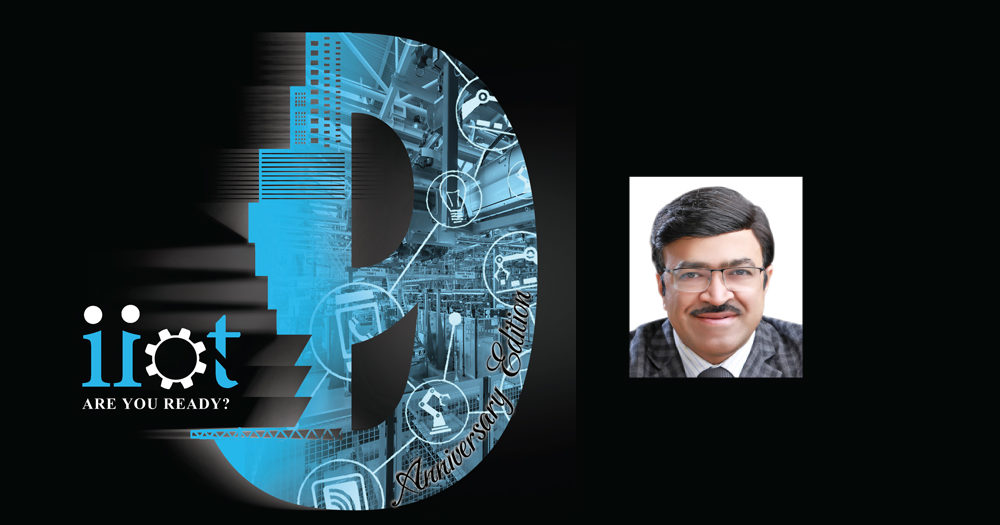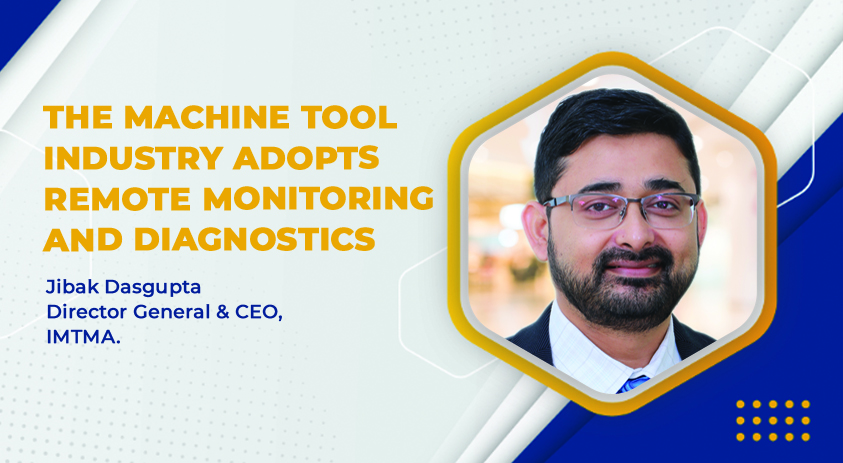Catching the way of digitisation
June 13, 2018 11:26 am
Siva Kasturi,
Asia Pacific Regional OEM Manager, Shell Lubricants
The value of IoT lies in the data that is collected long with the insight and/or proactive response gleaned from such data either in isolation or when integrated with other types of data, yielding unique insight.
Internet of Things – Insights and Opportunities
The Internet of Things (IoT) is the network of dedicated physical objects and intelligent devices (things) that contain embedded technology to sense or interact with their internal state or external environment. The IoT comprises an ecosystem (both industrial and consumer) that includes things, communications, cloud platforms and data analytics. According to Siva Kasturi, Asia Pacific Regional OEM Manager, Shell Lubricants, The value of IoT lies in the data that is collected long with the insight and/or proactive response gleaned from such data
either in isolation or (more often) when integrated with other types of data, yielding unique insight.
Certainly, in industrial manufacturing, the IoT has the potential to fundamentally shift the way one interact with its surroundings. The ability to monitor and manage objects in the industrial manufacturing, newer techniques deployed in preventive maintenance and predictive maintenance etc are playing a significant role in enhancing the overall operations and reducing total cost of operations.
He adds, “For many industrial end users and manufacturing companies, the focus is on how digital technologies can help address current business challenges and how those technologies that can have a substantial impact on our industry. Digitalisation is not new; it is not an outcome, a one off thing or only in the future. It has the ability to transform the entire organisation and should be part of the business strategy. Manufacturing companies are aggressively focusing on digital transformation which will require significant investment in technologies and needs to be business opportunity driven, rather than a technology push.”
IIoT adoption drivers
Industry 4.0 represents the digitisation of manufacturing sector, driven by four disruptions. Significant rise in data volumes and connectivity, emergence of analytics and business intelligence capabilities, new forms of human machine interactions such as touch interfaces and augmented reality systems.
IIoT is all about connecting the industrial assets in manufacturing locations, such as machines and control systems, with the information systems, with the people who are operating and with the business processes. Built on the connectiveness, we can collect large amount of data of various performance or operational parameters, analyse and apply advanced analytics to gain operational insights and understand challenges. With this new level of insights, OEMs and manufacturing companies can broadly enable strategies to drive intelligent industrial operations, from there to create new business values and even to seek transformational business outcomes. Eventually, Kasturi feels, IIoT will drive significant adoptions across diversified industrial sectors from construction, cement, mining to chemical industry, power to pharma, agriculture to textile and general manufacturing.
Shell’s preparedness in the area of IIoT
IIoT significantly helps to collect data, analyse and monitor the performance of critical machinery. The wave of digitisation has been changing the way companies do business for more than a decade, forcing the adoption of new and innovative business models. According to Kasturi, “No industry is immune from the impact of digital disruption; and while the shift to digital technology is not overly new, the next upsurge seems to be hitting at rapid speed, driving a dramatic period of change.”
Effective lubrication is central to the efficient operation of many businesses in manufacturing industries. The delivery of lubricant technical services has the capacity to add significant value, identifying the most appropriate technology, and managing it in the most effective way to improve business performance. The evolution of smart automation tools, including Cloud Computing, Big Data, the IoT, Artificial Intelligence and Augmented Reality are becoming increasingly relevant to “generate, capture and analyse lubricant tech data” and realise opportunities to create business value. He adds, “We strongly believe that industry players are the key to unlocking this competitive advantage.”
Shell believes there is potential for lubrication to deliver significant business value by helping reduce costs and improve equipment productivity. For Shell, this is directly connected with improved productivity and profitability. Many customers underestimate the potential impact of lubrication, or associated costs of suboptimum operation. Recently, Shell Lubricants have unveiled results of a survey of 1,800 Shell customers worldwide, representing six different sectors. The findings are noteworthy. Nearly 60 per cent understand lubricants deliver some impact on operating costs. A staggering 51 per cent don’t expect higher quality lubricants will have any impact on their business, and 63 per cent admit to insufficient staff training on lubricants. Manufacturing companies are missing out on significant potential savings, Shell’s data suggesting lubricants can impact up to 30 per cent of maintenance budget.
Shell LubeMatch
Shell has adopted a more aggressive approach to virtual engagement leveraging IoT. Shell LubeMatch is a publicly available service, globally connected to a worldwide database that identifies the most appropriate Shell product for a given application. The recommendation service recognises which country the request comes from, and will match to the local Shell portfolio. Shell LubeMatch delivers approximately 14 million recommendations per year. More recently, the company has expanded virtual engagement technology to include Artificial Intelligence. Kasturi claims that Shell Lubricants are the first in the industry to provide such a service.
Shell Virtual Assistant
Shell Virtual Assistant, (Shelly in India) is available to Shell distributors in key markets, and provides an Artificial Intelligence advisor for frontline advice to customers. Shell Virtual assistant has multilanguage skills, textbook conversation, knowledge of more than 3,000 shell products and 10,000 competitor products. The technology is currently delivering 100,000 interactions per year.
Conclusion
It is an exciting era for emerging technologies by leveraging the IoT. Shell has been working on a prototype technology called LubeAnalyst Sensors, able to ‘fingerprint’ an oil while in operation and monitor a continuous signal to potentially act as a warning sign for real time operation issues for high cost equipment in the field. “At Shell we believe that lubricants and lubricant management systems will have a critical integration role in this process – and collaboration between lubricant suppliers, OEMs and end users is key to unlocking the full potential,” concludes Kasturi.
Cookie Consent
We use cookies to personalize your experience. By continuing to visit this website you agree to our Terms & Conditions, Privacy Policy and Cookie Policy.


















